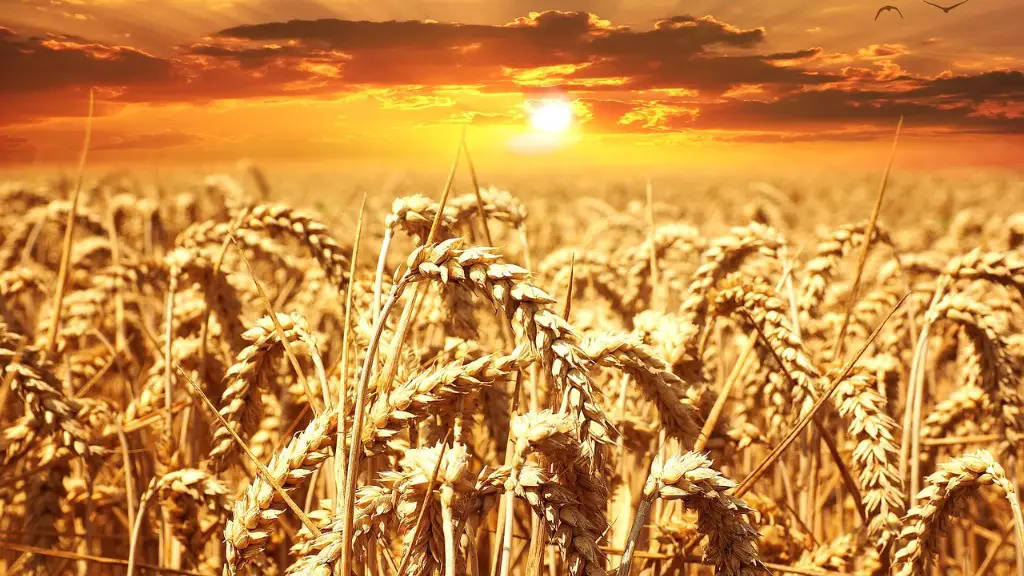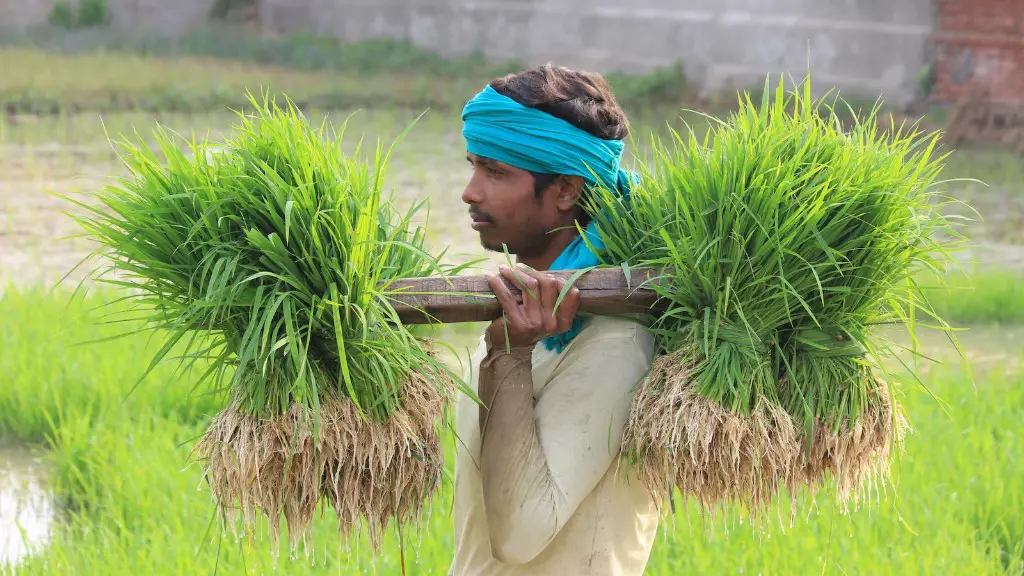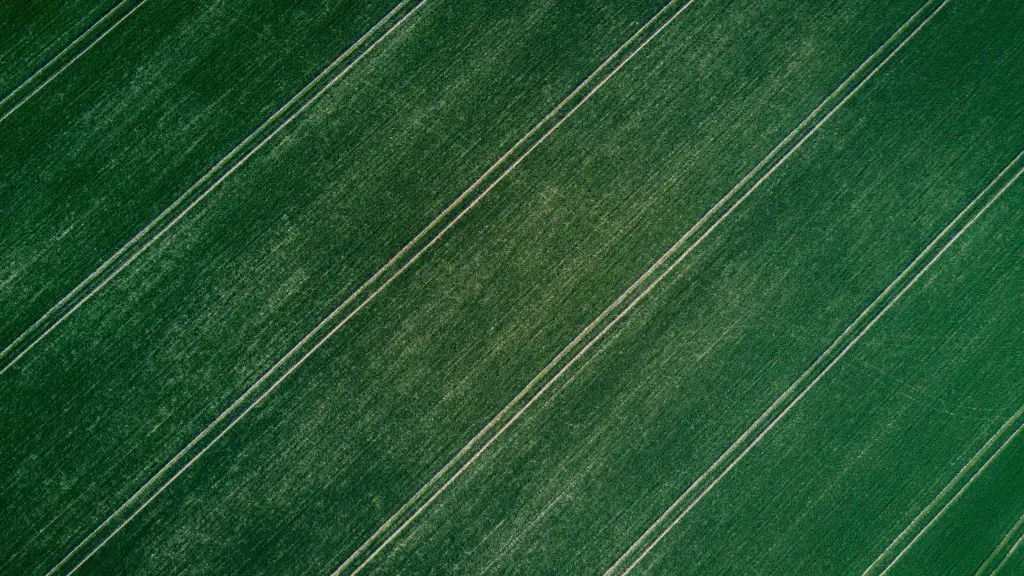If you’re looking to start an agriculture business in Canada, there are a few things you need to know. First, you’ll need to have a clear idea of what type of agriculture business you want to start. There are many different types of agriculture businesses, from small family farms to large commercial operations. Once you’ve decided on the type of business you want to start, you’ll need to obtain the necessary licenses and permits from the government. You’ll also need to find a suitable location for your business, and make sure you have the right equipment. Finally, you’ll need to create a business plan and marketing strategy. With careful planning and execution, you can be successful in starting your own agriculture business in Canada.
There is no definitive answer to this question as there are many factors to consider when starting an agriculture business in Canada. Some important things to consider include the type of agriculture business you would like to start, the location of your farm, the climate and soil conditions in your area, and the availability of market outlets for your products. It is also important to obtain the necessary licenses and permits required to operate an agricultural business in Canada. Once you have considered all of these factors, you can begin developing a business plan and researching potential markets for your products.
What type of farming is most profitable in Canada?
Cattle are a great investment for any farmer looking to get into the livestock business. With a massive market for beef in the US and Canada, raising cattle is at the top of the list for livestock. Not only is the market for beef strong, but the byproducts of cattle (leather, milk, etc.) are also in high demand. Cattle are a relatively easy animal to raise and take care of, making them a great choice for farmers looking to get into the livestock business.
The farmer stream immigration programs are special categories under the Canadian Business Immigration programs. They offer a viable immigration pathway for foreign farmers with the resources, skills, and knowledge to start or acquire and operate farms in the country. The farmer stream programs are designed to help farmers immigrate to Canada and contribute to the Canadian agricultural sector. The programs offer a number of benefits, including the ability to live and work in Canada, access to farmlands, and the opportunity to obtain financial assistance.
Is farming a profitable business in Canada
This is great news for Canadian farmers! Farm income is forecast to continue rising in 2022, reaching even higher levels than in 2021. This is thanks to strong global demand for Canadian agriculture products, and continued high prices for many commodities. With farm income forecast to remain strong in the coming years, Canadian agriculture is in a good position to continue thriving.
Are you looking to start your own agribusiness? Whether you’re looking to start a small farm or a large commercial operation, there are a few things you need to do to get started. First, you need to do your market research to see if there’s a demand for what you want to produce. Next, you need to create a business plan and arrange the necessary funds. Once you have the financials in order, you need to understand the laws and regulations related to your business. Finally, you need to register your business and acquire the necessary licenses. Once you have all of these things in place, you’re ready to start your agribusiness!
Can I immigrate to Canada to farm?
The Agri-Food Pilot is a great way to address the labour needs of the Canadian agri-food sector. The pilot provides a pathway to permanent residence for experienced, non-seasonal workers in specific industries and occupations. It will run until May 2023. This is a great opportunity for workers in the agri-food sector to come to Canada and build a new life.
If you are a foreign investor interested in buying agricultural land in Canada, it is important to consult with a legal advisor to determine if there are any restrictions in the province where you are interested in purchasing land. Some provinces have strict restrictions on the number of acres owned by foreigners or corporations, while others allow non-residents to buy up agricultural land unrestricted. Knowing the laws in the province where you want to purchase land will help you avoid any potential problems down the road.
How much does 1 acre of land cost in Canada?
The related tables with other frequencies for geography farm land and buildings are as follows:
– Canada (map): value per acre is 3,415
– Newfoundland and Labrador (map): value per acre is 5,421
– Prince Edward Island (map): value per acre is 4,185
– Nova Scotia (map): value per acre is 2,354
– New Brunswick (map): value per acre is 1,964
– Quebec (map): value per acre is 2,978
– Ontario (map): value per acre is 3,347
– Manitoba (map): value per acre is 1,764
– Saskatchewan (map): value per acre is 1,426
– Alberta (map): value per acre is 1,577
– British Columbia (map): value per acre is 3,526
In Canada, agriculture and agri-food businesses are subject to a combination of federal and provincial income taxes, federal and provincial sales and excise taxes, and provincial and municipal property taxes. Tax rates, exemptions and deductions on agricultural land vary from province to province.
The federal government levies a Goods and Services Tax (GST) of 5% on the sale of most agricultural products. The GST is also applied to most agri-food inputs, such as seed, feed, fertilizer, livestock, fuel, electricity and farm machinery.
Income taxes on agriculture and agri-food businesses are imposed at both the federal and provincial level. The federal government imposes a general corporate income tax rate of 15% on agricultural businesses. Provincial income tax rates on agriculture and agri-food businesses vary from province to province, but are generally lower than the federal rate.
Agricultural businesses are also subject to provincial sales taxes on the purchase of machinery, equipment and other inputs. In some provinces, these taxes are exemptions or deductions.
Property taxes on farmland are imposed by municipalities. Property tax rates vary depending on the municipality, but are typically lower for agricultural land than for other types of property.
Are farmers in demand in Canada
If you’re thinking about becoming a farmer in Canada, there are a few things to keep in mind. First, farming can be a very rewarding and profitable career. However, it is also a high-demand profession, so you shouldn’t have any trouble finding work. Secondly, the hours can be long and the work can be physically demanding. But if you’re up for the challenge, farming can be a great way to make a good living.
Western Canada is a breadbasket for the country, producing a large share of the country’s wheat, canola, and barley. The region’s vast expanses of prairie land are ideal for growing these crops. The region is also home to a large portion of the country’s beef cattle industry. Manitoba, Saskatchewan, and Alberta are the top three beef-producing provinces in the country. The region’s cattle industry is bolstered by the fact that there is an abundance of feed available for the animals. Hay and field crops are grown in large quantities in the region, providing a plentiful food source for the cattle. The region’s climate also plays a role in the success of the cattle industry, as the mild winters and cool summers are ideal for raising cattle.
How much do farm owners make in Canada?
There is a lot of variation in how much farmers make in Canada. The average farmer salary is $38,513 per year or $1975 per hour. Entry-level positions start at $33,150 per year, while most experienced workers make up to $47,970 per year. However, there are many factors that can affect how much a farmer makes, including the type of farm, the location of the farm, the size of the farm, and the type of crop grown.
The majority of Canadian farm operating revenues in 2018 came from crop sales, totalling 484%. This is followed by livestock revenues, which accounted for 409%. These figures show that Canadian agriculture is still largely reliant on traditional farming practices.
Is agricultural income tax free
“Agricultural income” means-
(a) any rent or revenue derived from land which is situated in India and is used for agricultural purposes;
(b) any income derived from such land by-
(i) agriculture;
(ii) the performance of any agricultural operation including in the case of land used for pasture or grove, the raising of livestock or the deepening, widening or reconstruction of any natural water-course; or
(iii) the maintenance of farm machinery or farm buildings; or
(c) any income derived from timber grown on any land in India; or
(d) any income derived from the business of raising or collecting of milk, eggs, honey, beeswax, silk cocoons, wool, hair, dung;
As per section 10(1), agricultural income earned by the taxpayer in India is exempt from tax. Agricultural income is defined under section 2(1A) of the Income-tax Act.
Dairy farming can be a profitable agricultural business idea if done correctly. Aside from milk, dairy farming can also produce manure, which can be used as fertilizer for other crops. There is a high demand for organic dairy products all year round, such as milk, cheese, curd, cream, and so on. If you are considering starting a dairy farm, be sure to do your research and understand the business well before getting started.
What is the most profitable type of agriculture?
These are some of the most profitable things to grow and sell. Microgreens, herbs, and lavender are all very popular items that can be sold for a high profit. Tree and shrub farming can also be quite profitable, as well as organic farming. Community-supported agriculture (CSA) programs are also becoming more popular and can be quite profitable for farmers.
As an individual, you would need approximately $15,500 CAD to immigrate to Canada. Couples would need around $21,000 CAD while families with children will require between $25,000 to $30,000 CAD. These are general estimates and may vary depending on your specific circumstances.
Can I relocate to Canada without a job
There are a few cases in which you will need a job offer in order to be eligible for Canadian immigration. If you are applying for the Federal Skilled Worker Program or the Federal Skilled Trades Program, you will need a job offer unless you can prove that you have enough money to support yourself and your family. Even in these cases, however, it is still advisable to look for a job before moving to Canada, as it will make the transition smoother and increase your chances of success.
Starting a farm in Canada can be an exciting and nerve-wracking experience. There are a few key steps that you will need to take in order to get your farm up and running.
Firstly, you will need to choose what you want to produce. Do your research and make sure you know everything about your chosen product.
Next, you will need to choose a business structure. Will you be a sole proprietor, partnership, or corporation? Register your farm with the relevant authorities.
Now you will need to find land. This can be one of the most challenging aspects of starting a farm. You will need to make sure you have the correct Premises Identification Number (PID) for your farm.
Finally, you need to learn about the different tax rates and programs that are available to farmers in Canada. This will ensure that you are compliant with all the relevant regulations.
With these steps, you will be well on your way to starting a farm in Canada!
Warp Up
To start an agriculture business in Canada, you will need to obtain a business license from the government. You will also need to purchase farmland or lease farmland from a farmer. Once you have obtained the necessary licenses and land, you will need to purchase equipment and supplies, such as tractors, seed, and fertilizer. You will also need to hire employees to help you with the farming.
The process of starting an agricultural business in Canada can be daunting, but it is possible with the right planning and execution. There are a few key steps that must be taken in order to ensure success, including research, market analysis, and financial planning. Additionally, it is important to have a clear understanding of the various regulations and requirements that are necessary for operating an agricultural business in Canada. With careful planning and execution, starting an agricultural business in Canada can be a successful venture.





